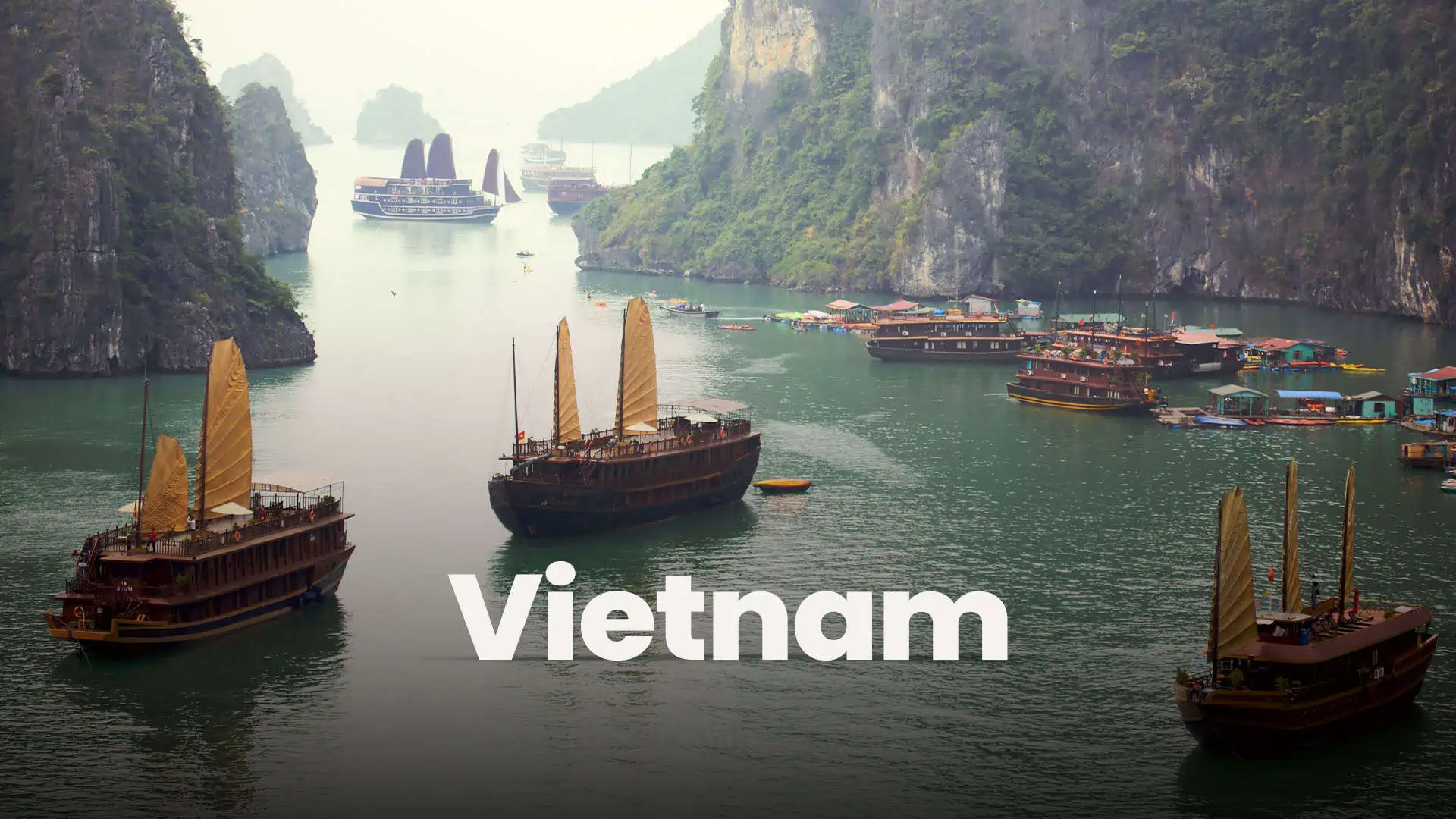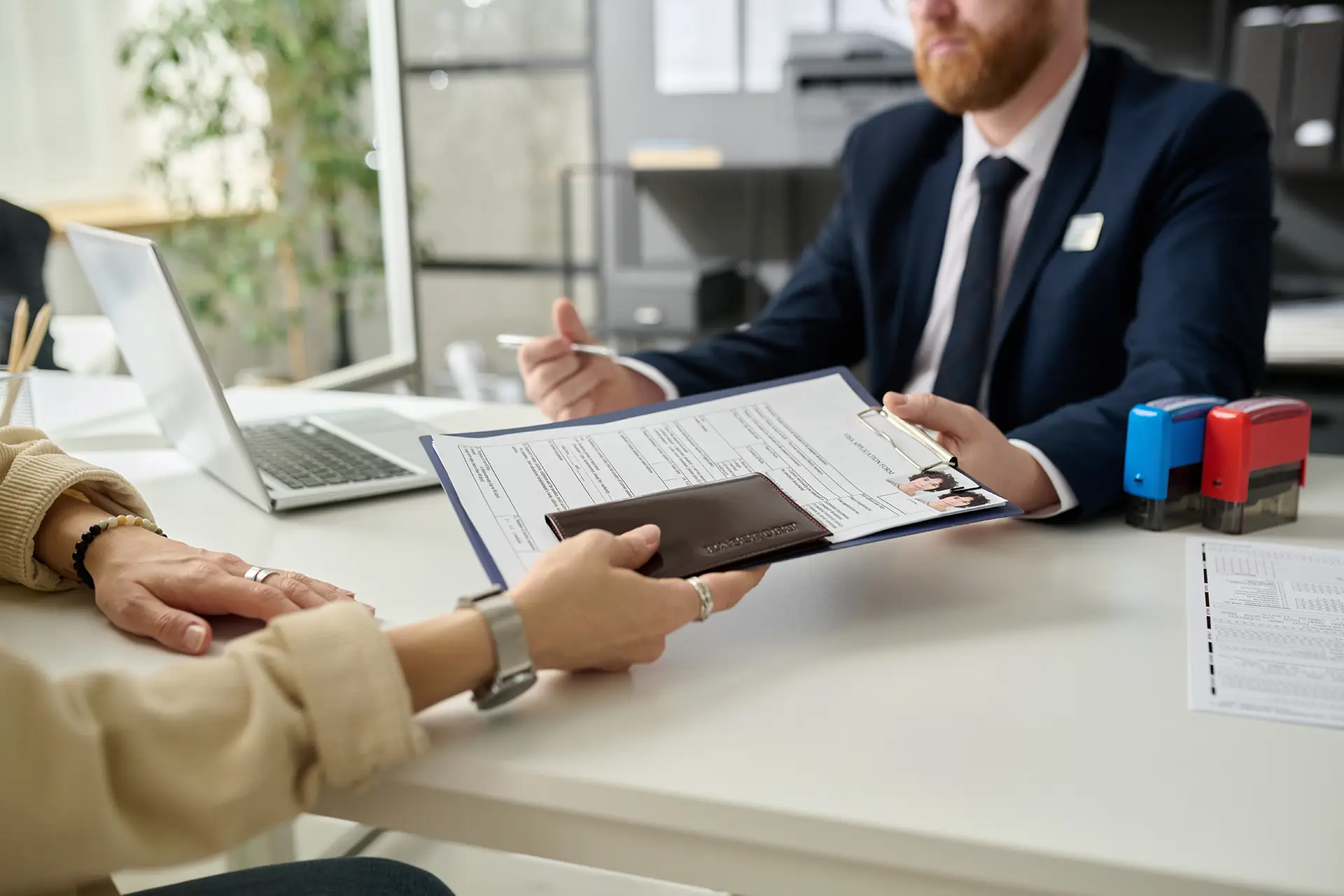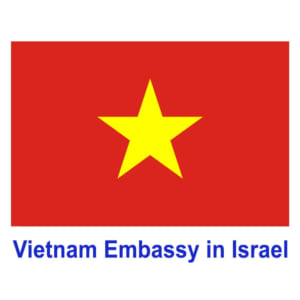
Avoiding Common Mistakes Indians Make in the Vietnam Visa Process – A Comprehensive Guide for Hassle-Free Travel
Navigating through the visa process can be a daunting task for many, especially for those unfamiliar with the requirements and procedures of a new country. Among these, Common Mistakes Indians Make in the Vietnam Visa Process often lead to unnecessary delays or even visa rejections. This article aims to illuminate the pathways to a successful visa application, empowering travelers with the knowledge they need to avoid pitfalls and ensure a seamless journey to Vietnam.
Understanding Vietnam’s Visa Requirements: A Primer for Indian Citizens

Before embarking on your travel plans to Vietnam, it’s crucial to have a solid understanding of its visa requirements. Vietnam offers various types of visas, including tourist visas, business visas, and e-visas, each catering to different travel purposes.
In this section, we will delve into the fundamental requirements that Indian citizens must fulfill to secure their visas successfully.
Types of Visas Available for Indian Travelers
Vietnam provides several visa options depending on your travel needs:
- Tourist Visa: Ideal for leisure trips, generally valid for 30 days and can be extended.
- Business Visa: Suited for professionals traveling for work-related reasons, usually available for longer durations.
- E-Visa: A convenient option allowing online applications for stays up to 30 days, perfect for short visits.
It’s essential to assess which type aligns with your travel intentions, as applying for the wrong visa can delay your journey.
Eligibility Criteria for Indian Citizens
To apply for any visa to Vietnam, Indian citizens must meet specific eligibility criteria:
- Valid Passport: Your passport should be valid for at least six months beyond your intended departure date from Vietnam.
- Sufficient Funds: You may need to provide proof of financial stability demonstrating your ability to support yourself during your stay.
- No Criminal Record: Applicants should not have a criminal background that could hinder their entry into Vietnam.
Understanding these criteria beforehand can prevent common mistakes and ensure a smooth application process.
Necessary Documents for Visa Application
When applying for a Vietnam visa, several key documents are required:
- Completed visa application form
- Recent passport-sized photographs
- Valid passport copy
- Proof of accommodation (hotel bookings)
- Flight itinerary
Gathering all necessary documents in advance will streamline your application process, reducing the chances of errors.
Common Errors in Visa Application Forms: Filling Out the Information Correctly

Filling out the visa application form is critical, yet it’s also where many applicants stumble. Mistakes—whether typographical, omissions, or incorrect information—can result in delays or outright denials.
Understanding the various aspects of the application form can save you time and effort in the long run.
Importance of Accurate Personal Information
One of the most common mistakes is providing inaccurate personal information. Even minor errors can lead to complications.
When filling out your application, pay close attention to:
- Spelling of Names: Ensure your name matches exactly with your passport.
- Date of Birth: An incorrectly entered birthdate can raise flags.
- Passport Number: Double-check this number as it’s crucial for identification purposes.
A meticulous approach to entering your personal details reduces the risk of rejection.
Clarity and Completeness in Responses
Applications lacking clarity or completeness can confuse visa officers, leading to delays.
To maintain clarity:
- Use Clear Language: Avoid jargon or ambiguous terms.
- Complete Every Section: Ensure you don’t leave any fields blank unless instructed otherwise.
- Attach Supplementary Information: If required, provide additional documentation to clarify your circumstances.
Taking the time to present thorough and clear information can facilitate smoother processing.
Verification Before Submission
Before hitting ‘submit,’ verification is essential.
Steps to consider include:
- Reviewing Each Document: Go through your forms and supporting documents systematically to ensure everything is correct.
- Seeking External Assistance: If unsure, consider seeking help from someone experienced in visa applications.
- Double-Check Submission Guidelines: Each embassy may have specific submission practices; ensure you’re following them precisely.
By taking these extra precautions, you significantly increase your chances of a successful visa application.
Passport Validity and Photograph Specifications: Avoiding Common Pitfalls

Two elements that play a significant role in the visa application process are your passport and photographs. Many applicants unknowingly overlook the specific requirements related to these two critical components.
Here, we’ll explore what you need to know about meeting the standards for passports and photographs.
Ensuring Passport Validity
Your passport serves as your primary identification document. It’s vital to check its validity before applying for a visa.
Consider the following:
- Minimum Validity Period: Most countries, including Vietnam, require passports to be valid for at least six months beyond your planned departure date.
- Unused Pages: Ensure that your passport has enough blank pages for the visa stamp and any future entries or exits.
- Damage Checks: A damaged passport can raise concerns. Always check for tears, water damage, or alterations.
Keeping an eye on these details can prevent last-minute issues that might jeopardize your travel plans.
Photograph Specifications for Visa Applications
Photographs submitted with your visa application should adhere to specific guidelines.
The common requirements typically include:
- Size: The standard size is 4×6 cm, but always verify with the latest guidelines.
- Background: A plain white background is usually preferred to minimize distractions.
- Quality: Ensure the photo is high resolution and not pixelated or blurry.
Additional aspects like facial expressions and attire also matter; your face should be neutral and fully visible without sunglasses or hats.
Following these photographic specifications meticulously can save you from unnecessary rejections.
Seeking Professional Help for Passport and Photos
If you’re unsure about the passport or photograph requirements, consider enlisting professional services.
Benefits of opting for professional assistance include:
- Expert Guidance: Professionals often have updated knowledge regarding visa requirements.
- Quality Assurance: They ensure your photographs meet specified standards, reducing rejection risks.
- Convenience: This can save you time and effort, allowing you to focus on other travel preparations.
Professional assistance may incur an additional cost, but the peace of mind and assurance can be worth the investment.
Proof of Accommodation and Itinerary: Ensuring Sufficient Documentation
Visa applications often necessitate proof of accommodation and travel itineraries to validate the purpose of your visit. Unfortunately, applicants frequently neglect these essential documents, causing significant setbacks in their visa applications.
Let’s break down what you need to know about documenting your travel plans effectively.
Importance of Providing Proof of Accommodation
Proof of accommodation is a vital aspect of your visa application. It assures the authorities that you have a place to stay upon arrival.
Considerations include:
- Hotel Bookings: Provide confirmed reservations showing your name, dates, and accommodation details.
- Invitation Letters: If staying with friends or family, an invitation letter along with proof of residence can suffice.
- Short-term Rentals: Ensure that platforms like Airbnb offer proper documentation demonstrating your booking status.
Having reliable proof of accommodation can enhance your application’s credibility.
Crafting a Detailed Itinerary
A well-structured itinerary adds weight to your visa application, showcasing your planned activities in Vietnam.
Key elements to include:
- Dates and Locations: Clearly outline the cities you’ll be visiting and the duration of each stay.
- Activities Planned: Highlight key attractions or events you plan to attend, such as cultural festivals or sightseeing tours.
- Transportation Details: Mention how you intend to travel between locations, whether by train, bus, or rental car.
An extensive itinerary demonstrates your commitment to abiding by Vietnamese regulations, thereby increasing your chances of approval.
Checking Local Legal Requirements
Different visa categories may have unique local laws regarding proof of accommodation and itinerary.
Stay informed by:
- Researching Local Regulations: Understand the specific requirements for your visa category by checking official government resources.
- Using Reputable Sources: Rely on trusted websites or forums to gather accurate information about accommodations and travel.
Being aware of the legal landscape ensures compliance and mirrors your responsibility as a traveler.
Navigating the Visa Fee Payment Process: Secure and Accurate Methods
Visa fees vary based on the type of visa you are applying for, and ensuring secure payment methods is paramount to your success.
Many applicants make mistakes when navigating this process, leading to avoidable complications.
In this section, we’ll cover the ins and outs of the payment process.
Understanding Visa Fees
First and foremost, familiarize yourself with the applicable visa fees for your intended category.
Factors influencing the fee structure include:
- Type of Visa: Tourist visas may differ from business visas in pricing.
- Duration of Stay: Longer visas typically incur higher costs.
- Processing Speed: Expedited services often come with additional charges.
Knowing the exact amount you need to pay helps you avoid underpayment or overpayment.
Accepted Payment Methods
Most embassies offer multiple payment options for visa fees; however, this varies by location.
Common acceptable payment methods include:
- Credit/Debit Cards: Often the most accessible option, but confirm if there are additional charges for card transactions.
- Bank Transfers: Some embassies accept direct bank transfers; ensure you have accurate banking details.
- Cash Payments: Check if cash is accepted and if so, understand the currency requirements.
Select a secure method that best suits your situation to avoid potential fraud or mishaps.
Verifying Payment Completion
After making your payment, it’s vital to verify that the transaction has been completed successfully.
Steps to follow include:
- Retain Receipts: Always keep a copy of your payment receipt for reference.
- Check Transaction Status: If paying online, monitor your account for confirmation emails or notification messages.
- Contact the Embassy: If any discrepancies arise, promptly reach out to the embassy for clarification.
Ensuring that your payment is correctly processed keeps your application on track.
Avoiding Delays: Understanding Visa Processing Times and Potential Hold-ups
Understanding the timelines involved in the visa application process is crucial for planning your trip efficiently. Delays can occur for various reasons, and being prepared can mitigate frustration.
This section will shed light on typical processing times and how to avoid unwanted holdups.
Standard Processing Times for Vietnam Visas
The processing time for Vietnam visas can vary based on several factors:
- Type of Visa: E-visas usually process faster than traditional visas, typically within three working days.
- Volume of Applications: High application volumes during peak seasons can lead to delays.
- Incomplete Applications: Missing or incorrect documentation can cause your application to be held up.
Being aware of these factors allows you to plan your application timeline accordingly.
Common Causes of Application Delays
Several common issues can lead to unwarranted processing delays.
These include:
- Missing Documentation: Failure to provide required documents can halt the entire process.
- Incorrect Information: Errors in your application can lead to requests for resubmission, extending wait times.
- Payment Issues: Problems with payment can stall your application until resolved.
Understanding these potential pitfalls empowers you to submit a complete and accurate application upfront.
Strategies to Minimize Delays
To ensure that your visa application proceeds smoothly, consider implementing the following strategies:
- Submit Early: Apply for your visa well in advance of your travel date to allow for processing time.
- Double-Check Your Application: Thoroughly review your application and supporting documents before submission.
- Stay Informed About Current Processing Times: Regularly check the embassy’s website for updates, particularly if you anticipate delays.
Adopting a proactive approach to your application can significantly reduce the likelihood of delays.
Appealing Visa Rejections: Understanding the Process and Grounds for Appeal
Receiving a visa rejection can be disheartening; however, it’s essential to understand that there are avenues for appeal. Knowing the grounds for appeal and the steps involved is crucial for your next move.
In this segment, we’ll discuss the common grounds for rejection and how to navigate the appeals process.
Common Grounds for Visa Rejection
Familiarizing yourself with the common reasons for visa denial can help you better prepare your application.
Typical grounds for rejection include:
- Incomplete Application: Missing necessary documents can lead to automatic denial.
- Inaccurate Information: Providing false or misleading information raises red flags.
- Insufficient Financial Evidence: Failing to prove you can support yourself during your stay can be detrimental.
Awareness of these grounds allows you to craft a thorough application that minimizes risks.
Steps to Appeal a Visa Rejection
Should your visa application be denied, follow these steps to initiate the appeal process:
- Understand the Reason for Rejection: Carefully read through the rejection notice to identify the grounds cited.
- Collect Additional Evidence: Gather any documents that may strengthen your case or address the reason for denial.
- Draft an Appeal Letter: Compose a formal appeal letter addressing the reasons for rejection, explaining why you believe the decision should be reconsidered.
- Submit Promptly: Ensure that you submit your appeal within the specified timeframe to avoid additional complications.
Being systematic and organized in your approach enhances your chances of a successful appeal.
Utilizing Legal Assistance
In more complex cases, it may be beneficial to seek legal assistance.
Advantages of consulting an immigration lawyer include:
- Expert Guidance: They can provide tailored advice specific to your situation.
- Thorough Preparation: Professionals can help you assemble compelling evidence for your appeal.
- Increased Success Rates: Experienced legal practitioners often have a higher success rate in securing approvals for their clients.
While this may involve added costs, the benefits of professional insight can outweigh expenses, especially in challenging cases.
Utilizing Reputable Visa Agencies: Avoiding Scams and Ensuring a Smooth Process
Navigating the visa process alone can be challenging, prompting many applicants to seek assistance from visa agencies. However, not all agencies are trustworthy. Understanding how to select reputable services is crucial to avoiding scams.
This section will guide you through identifying credible agencies while safeguarding your interests.
Researching Visa Agencies Effectively
Before selecting a visa agency, conduct thorough research to ensure you choose a reputable service.
Key considerations include:
- Customer Reviews: Look for reviews and testimonials from previous clients to gauge the agency’s reliability.
- Transparency: A trustworthy agency should clearly outline their services, fees, and processes.
- Official Affiliations: Check for affiliations with relevant government bodies or industry organizations.
Conducting due diligence helps you filter out unreliable agencies.
Recognizing Red Flags in Visa Agencies
Certain warning signs can indicate that an agency may not be reputable.
Be wary of:
- Excessive Promises: Agencies guaranteeing visa approval should raise skepticism.
- Lack of Contact Information: Legitimate agencies should provide clear contact details and customer support.
- Pressure Tactics: Any agency pressuring you to make quick decisions should be avoided.
Trust your instincts; if something feels amiss, consider searching for alternatives.
Choosing the Right Agency for Your Needs
Once you’ve shortlisted potential agencies, evaluate them based on their offerings and expertise.
Look for:
- Specialization: Choose agencies that specialize in visas for Vietnam, as they’ll be more familiar with nuances.
- Personalized Service: Opt for agencies that take the time to understand your unique situation and tailor solutions accordingly.
- Clear Communication: Effective communication reflects professionalism; gauge their responsiveness during initial interactions.
A well-chosen agency can alleviate much of the stress associated with the visa application process.
Conclusion
Successfully navigating the Vietnam visa application process hinges on awareness and preparation, particularly for Indian travelers. By understanding visa requirements, avoiding common errors in application forms, ensuring passport validity, and adhering to documentation specifications, applicants can improve their chances of approval. Additionally, having a sound grasp of visa fees, processing times, and the appeals process can eliminate potential delays and frustrations. Finally, leveraging reputable visa agencies can ease the burden of the application process. Armed with this knowledge, travelers can embark on their Vietnamese adventure free of unnecessary hurdles.

